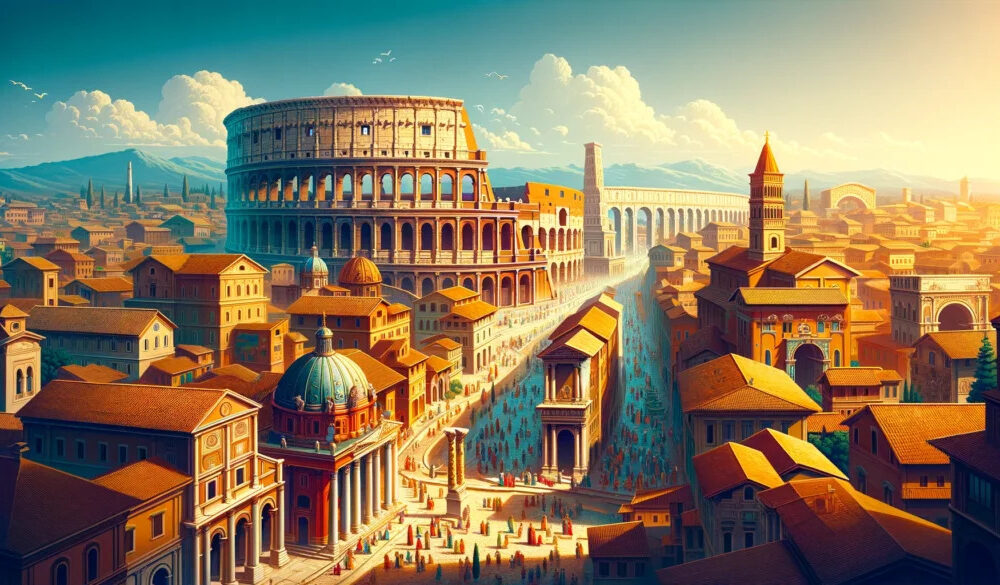The word “Antiquità” often brings to mind images of ancient civilizations, monumental architecture, and the foundations of modern culture. Antiquità, or antiquity, refers to the period in human history before the Middle Ages, encompassing ancient Greece, Rome, Egypt, and other great civilizations. This era, spanning from the dawn of recorded history to around the 5th century AD, is one of the most fascinating periods to explore due to its rich history, cultural developments, and lasting impact on the modern world.
The Meaning of Antiquità
Antiquità, derived from the Latin word “antiquitas,” means ancient or old. It represents a time when the foundations of philosophy, art, science, and governance were laid. This period is often divided into three key phases:
- Classical Antiquity: The period of ancient Greece and Rome.
- Late Antiquity: Transition phase from Classical Antiquity to the Middle Ages.
- Prehistoric Antiquity: Time before written records.
Key Civilizations of Antiquità
Ancient Egypt: The Cradle of Civilization
- Historical Overview: Flourished along the Nile River, known for pyramids, pharaohs, and hieroglyphs.
- Cultural Contributions: Art, architecture, and the concept of the afterlife.
- Legacy: Influences on modern architecture, religion, and art.
Ancient Greece: The Birthplace of Democracy
- Historical Overview: Known for city-states like Athens and Sparta.
- Philosophy and Science: Contributions by philosophers like Socrates, Plato, and Aristotle.
- Arts and Literature: Epic poetry, drama, and sculpture.
Ancient Rome: The Foundation of Western Civilization
- Historical Overview: Rome’s rise from a small city-state to a vast empire.
- Law and Governance: Roman law, republic, and the concept of citizenship.
- Engineering and Architecture: Aqueducts, roads, and the Colosseum.
The Transition from Antiquità to the Middle Ages
- Fall of the Roman Empire: Causes and consequences of Rome’s decline.
- Cultural Shifts: From paganism to Christianity.
- Economic and Social Changes: The transition to feudalism.
The Legacy of Antiquità in Modern Times
Art and Architecture
- Revival in the Renaissance: How antiquity influenced Renaissance art.
- Neoclassicism: The 18th-century revival of ancient styles.
- Modern Applications: Influence on modern architecture, government buildings, and cultural symbols.
Philosophy and Science
- Enduring Philosophies: The continued relevance of ancient philosophical ideas.
- Scientific Foundations: Contributions to mathematics, astronomy, and medicine.
Governance and Law
- Republicanism and Democracy: Ancient Greece and Rome’s influence on modern political systems.
- Legal Systems: Roman law as the basis for many modern legal systems.
Why Antiquità Remains Fascinating Today
- Educational Value: Understanding the origins of modern culture and thought.
- Cultural Heritage: Preservation of ancient sites and artifacts.
- Influence on Modern Pop Culture: How antiquity is represented in movies, literature, and art.
Frequently Asked Questions (FAQs)
What is the significance of Antiquità in history?
Antiquità is significant as it marks the period when many foundational aspects of modern civilization were established, including art, philosophy, law, and governance.
How did the civilizations of Antiquità influence modern society?
The civilizations of Antiquità, especially Greece and Rome, laid the groundwork for modern Western culture, contributing to government structures, legal systems, and philosophical thought.
What are some key sites to visit from the Antiquità period?
Some key sites include the Pyramids of Giza in Egypt, the Parthenon in Greece, and the Roman Colosseum in Italy.
Why is the study of Antiquità important today?
Studying Antiquità helps us understand the roots of modern civilization and the enduring legacy of ancient cultures in today’s world.
How did Antiquità transition into the Middle Ages?
The transition was marked by the fall of the Roman Empire, the spread of Christianity, and significant social and economic changes leading to the feudal system.
Conclusion
Antiquità represents one of the most pivotal times in human history, where the seeds of modern civilization were planted. By exploring this fascinating period, we gain insights into the origins of our current cultural, political, and social systems. Whether through the monumental architecture of Rome, the philosophical teachings of Greece, or the spiritual legacies of Egypt, the antiquity period continues to influence and inspire the world today.
